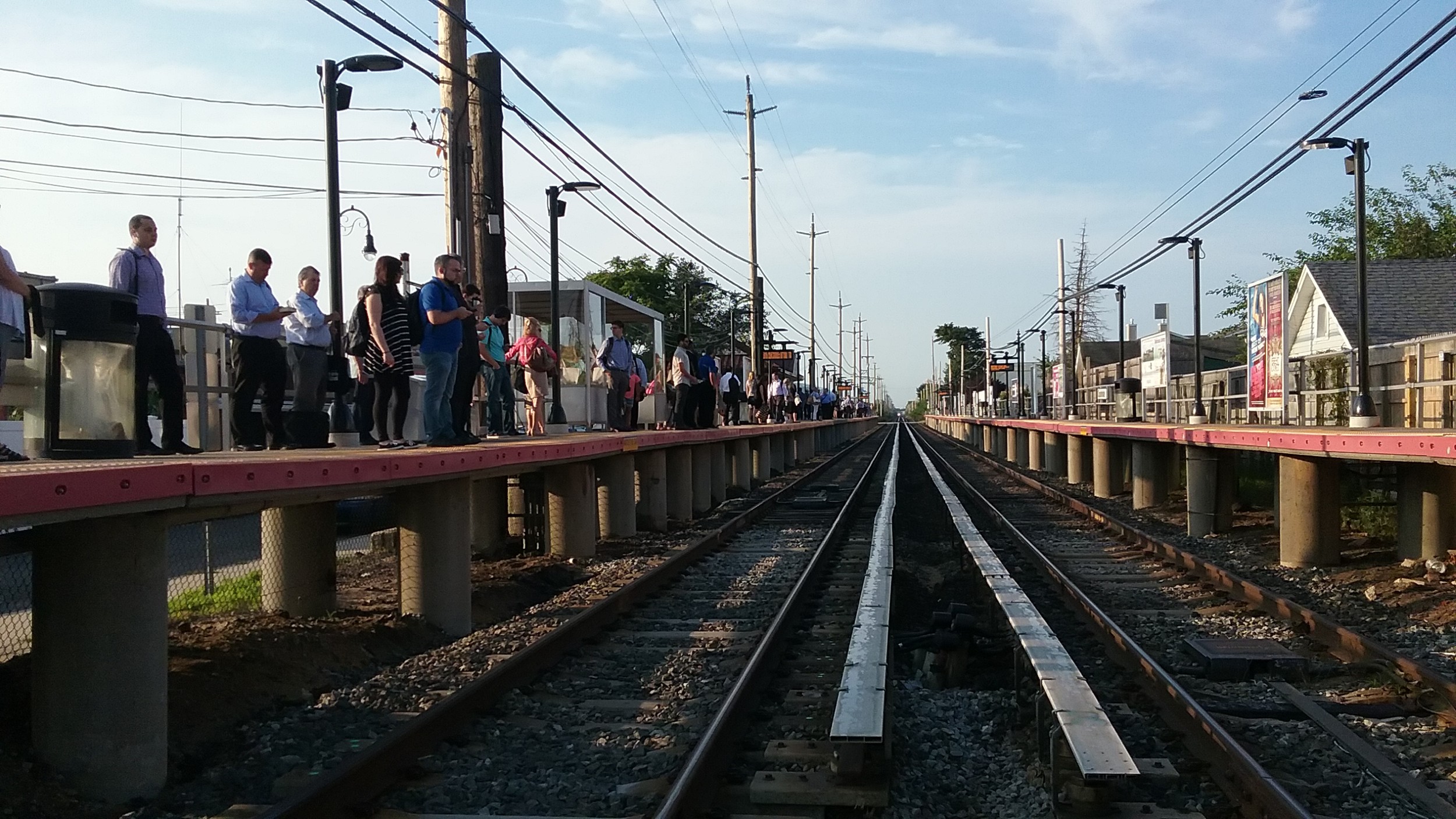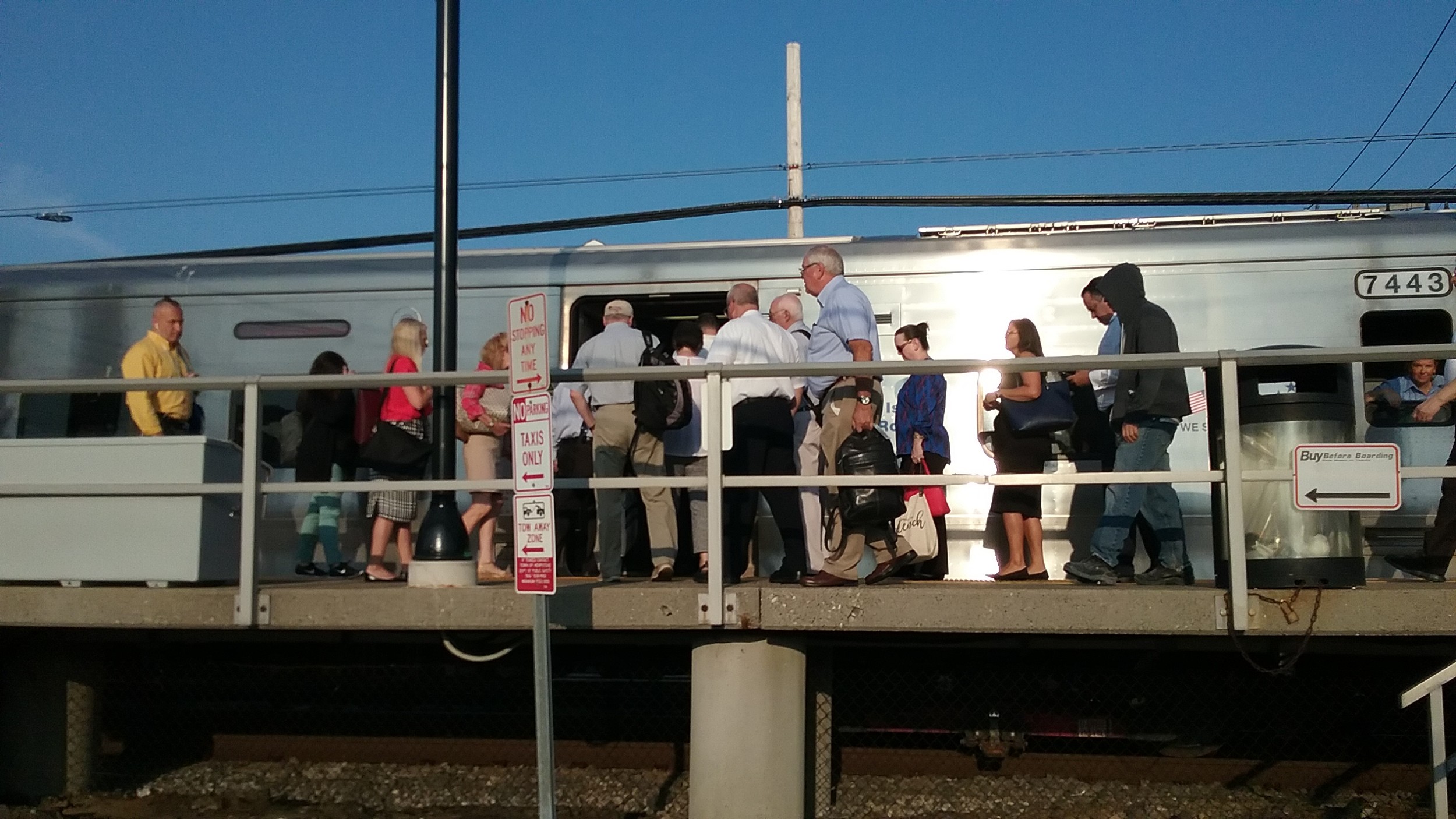Oceanside commuters weigh in on first week of 'Summer of Hell'
MTA’s new chairman Lhota not new to this
Many commuters have been girding themselves for delays, cancellations and crowded train cars on the Long Island Rail road after Amtrak, which owns and operates Penn Station, announced May 30 that major maintenance work would be done on the busy transit hub that hundreds of thousands of Long Islanders use to get to work.
But many Oceansiders say the first week of the “summer of hell,” as Gov. Andrew Cuomo dubbed it, actually went smoothly.
“The trains so far have been operating fine,” Sherryl McNally said, “so I don’t have any problems with it right now. I don’t know what’s gonna happen in the next couple of weeks, but right now they seem OK.”
Marina C. agreed, saying “I expected delays and cancellations, but so far it’s been good.” She commutes into Penn Station in the mornings, but heads back east in the afternoon from Atlantic Terminal in Brooklyn, and she said that seats are almost always available.
Riding conditions might be a little tighter on the way home from Penn though. Natalie C. said her eastbound ride on Thursday was “packed.” Despite the close quarters, she said, “The railroad was OK. Transfers went fast.”
But for many commuters, the LIRR is only part of their transportation. Many also contend with the Metropolitan Transportation Authority’s subway system, which has also suffered service issues in recent months. Natalie C. said she was stuck on the 2 train for an hour and a half. However, Marina C. said she has had no trouble with the subway this summer.
“I’m committed to making sure that the LIRR and the MTA are following their outlined plan to accommodate travelers and ease the travel burden caused by the track work,” State Assemblywoman Missy Miller, a Republican from Atlantic Beach, said in a statement. “However, I think it’s important we keep in mind that the tracks are being replaced as a public safety measure as we have seen by the many recent train derailments. Adding additional cars to existing trains, ferry and bus options will help ease some of the burden and frustration. It’s going to be a long summer, but in the end our safety is what’s most important.”
MTA Chairman Joe Lhota said in a July 14 conference call with the press, that measures such as fare reductions for morning arrivals in Atlantic Terminal, as well as extra buses and ferries, were largely working, and that many of the commuters who would be affected by the scheduled changes were “adapting” to the circumstances.
Lhota acknowledged that it is not easy for riders to change their routines, but said that those who decided to do so deserve credit for a successful first week. He said he hoped that things would go as well for the second week of scheduled service changes, “as more and more people come back from their vacations.”
Lhota is no stranger to seeing the MTA through a crisis. He served as its chairman from 2011 to 2012, including during Hurricane Sandy. At the time, Gene Russianoff, a staff lawyer for the Straphangers Campaign, a public transportation advocacy group, told The New York Times that Lhota’s preparations for the storm bordered “on the edge of magic.” Under his leadership, the MTA got parts of the subway running within three days, and most of it was operational by the end of the week.
Lhota left the MTA on Dec. 31, 2012, to launch an unsuccessful bid for mayor. This January, he signed on as the lead in the search for a permanent MTA chairman, until Gov. Andrew Cuomo appointed him to his old post in June. He will not run the day-to-day operations of the MTA, and will continue working at NYU’s Langone Center, where he is the senior vice president, vice dean and chief of staff. He is taking a symbolic salary from the MTA of $1.
State Sen. Todd Kaminsky, who has been outspoken about LIRR service, weighed in on what many elected leaders are calling a looming crisis. “With three tracks out of service at Penn Station, and incentives for Long Island commuters to utilize crowded alternatives such as Hunterspoint Avenue, future disruptions will prove disastrous for an already burdened system,” Kaminsky said. “While there has been only good news so far, it would be premature to celebrate.”









